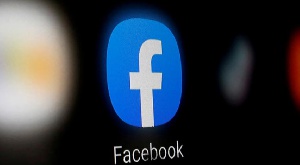 Facebook is a widely used social media platform in Uganda
Facebook is a widely used social media platform in Uganda
When Ugandans received messages from a service provider confirming that internet and social media service had been fully restored, the message added that Facebook remained banned.
Officials did not explain why Facebook is still restricted, but a senior government official told The Associated Press there are talks between the company and Uganda’s information ministry. The official spoke on condition of anonymity because he was not authorized to speak on the matter.
Uganda’s government reacted to Facebook’s removal of some accounts linked to the president’s reelection campaign by blocking access to the network for most Ugandans.
A Facebook official in the region said on Wednesday she needed more time to respond.
Three days ahead of voting, Facebook said it had removed a network of accounts and pages that “used fake and duplicate accounts to manage pages, comment on other people’s content, impersonate users, re-share posts in groups to make them appear more popular than they were.” The network was linked to a government ministry, it said.
Ugandan President Yoweri Museveni later accused Facebook and unnamed outside groups of “arrogance” and said the network “should be used equitably by everybody who wants to use it.”
Some of the accounts removed by Facebook had campaigned harshly against Bobi Wine, the 38-year-old singer and lawmaker who fired the imagination of many across Africa as he tried to unseat Museveni.
Uganda’s 76-year-old president has defied calls for his retirement, saying he has been elected many times by Ugandans who love him.
Museveni won the Jan. 14 vote with 58% and his closest rival Wine got 35%, according to official results.
Wine, whose real name is Kyagulanyi, Ssentamu, disputed the outcome and has since filed a legal challenge with the country’s top court.